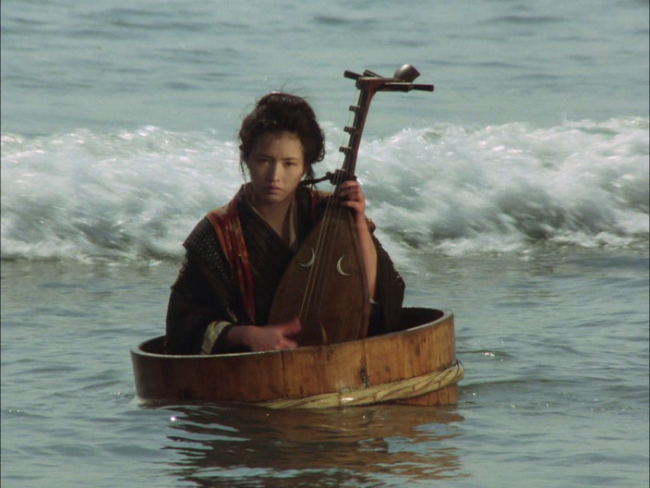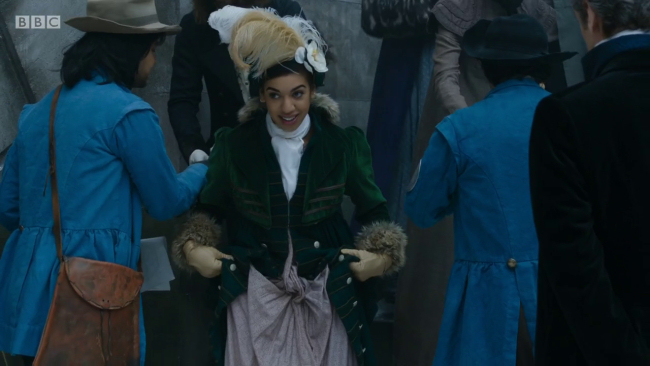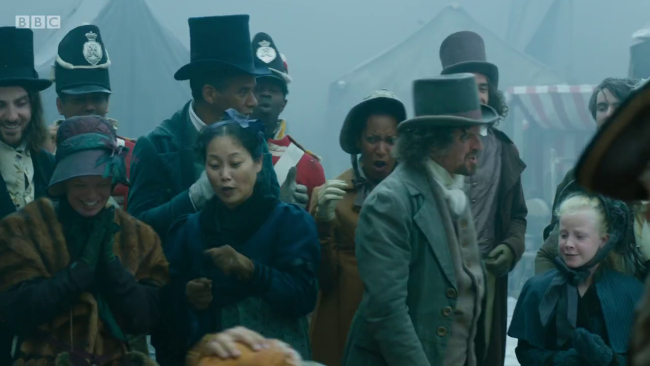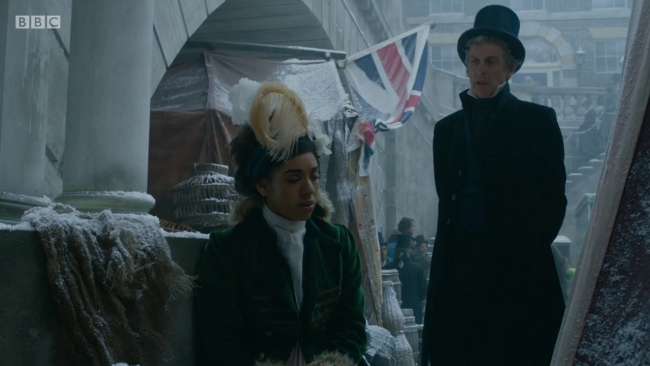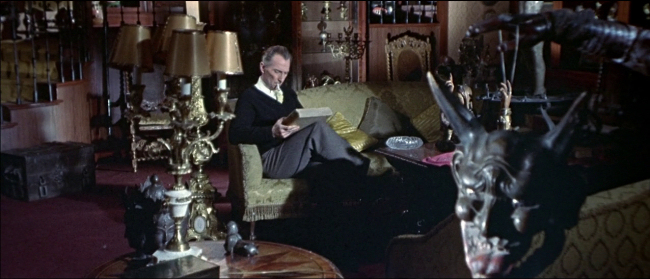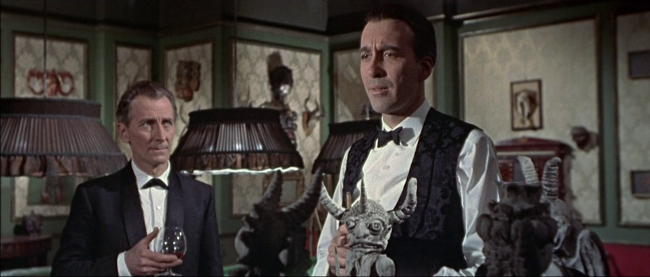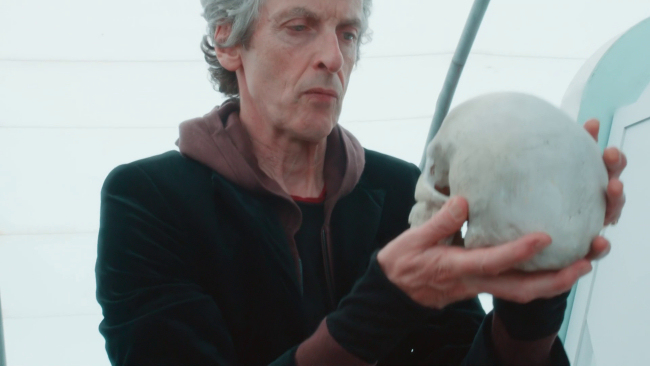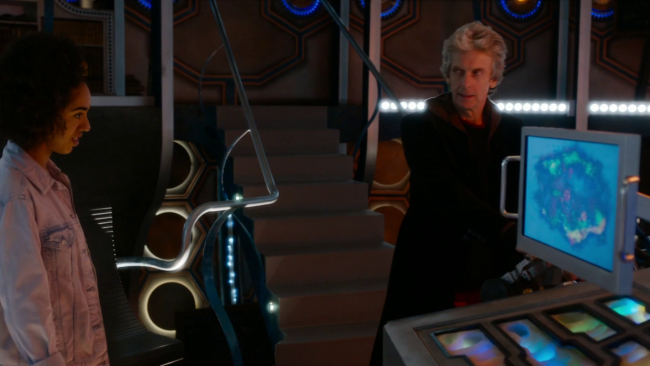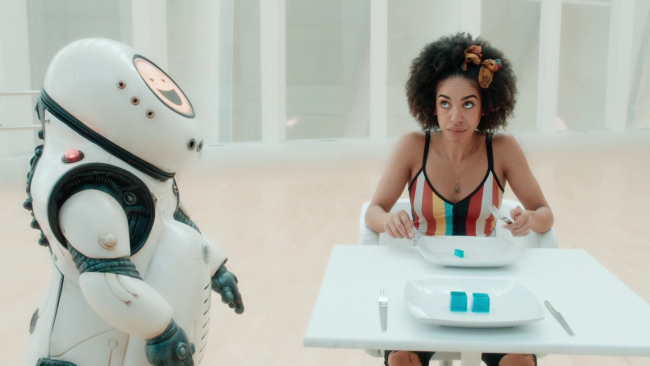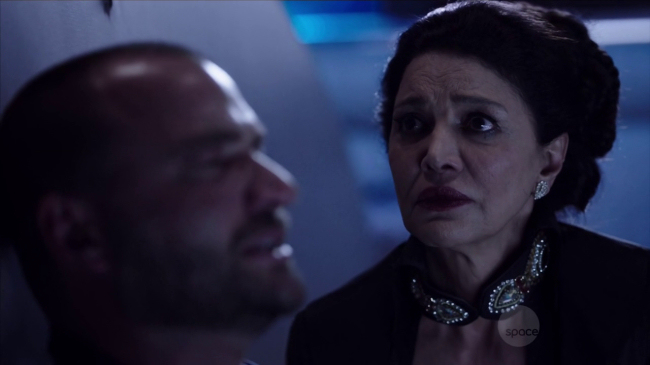
Destabilisation has never been so eerie or surreal as it is in Seijun Suzuki's 1980 film Zigeunerweisen. Describing it as a combination of Igmar Bergman, David Lynch, and Mel Brooks doesn't quite cover it. It's a film where cinematic language and absurd dialogue are deployed to undercut reliable impressions of relationships and reality itself with an intensely beautiful, simple visual style. Through dialogue scenes that constantly frustrate a desire for answers to the strange questions the film poses, there's the impression of an ecstatic dream or violent nightmare that's always kept just on the edge of manifestation.

Most of the film is from the perspective of Aochi, a mild mannered gentleman played by Toshiya Fujita, who was a director who appeared as an actor in only a couple films. He directed the Lady Snowblood movies among others--Suzuki's decision to cast a director in the lead, POV role seems to point to the story's nature as an examination of art or storytelling. The opening credits are shown over a record playing a recording of Zigeunerweisen by Pablo de Sarasate and Aochi and his friend Nakasago discuss the barely audible voice of the composer accidentally captured on the record, Nakasago pointing out that it's this unintelligible bit of speech that since made the recording famous.
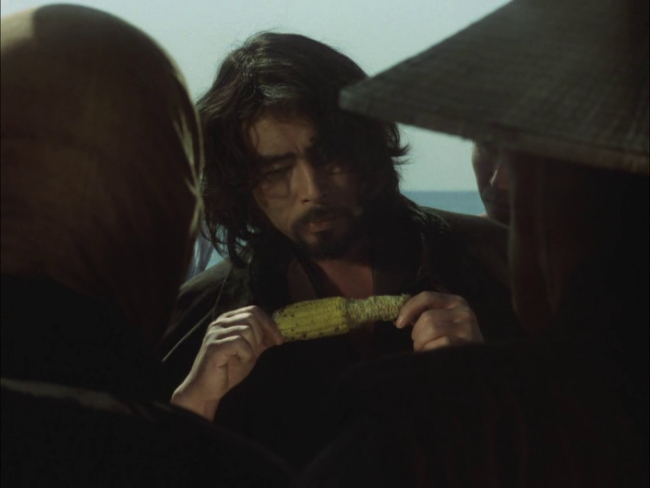
Nakasago is played by the charismatic Yoshio Harada--we're properly introduced to him on a beach where he's apparently just murdered a young woman who was in love with him. But after a brief action sequence, he charms the police officer and a crowd of onlookers into letting him go.

Throughout the film, Nakasago's desires are never impeded, everyone seemingly inclined to let the dishevelled man have his way. He, too, seems to embody something about perspective--his otherwise messy hair almost always has a curl covering his left eye like an eye-patch. In one extraordinary scene possibly hallucinated by Aochi's bedridden sister-in-law (Kisako Makishi), Aochi's wife, Shuko (Michiyo Okusu) actually licks Nakasago's eye.

There's another woman, or possibly two other women, referred to as either Koine or Sono, played by Naoko Otani, who may be a geisha or may be Nakasago's wife. In both personae, she seems somewhat jealous of the other. This may be a statement about the relative appeal of a formal relationship against a freer, more relaxed one. Though when we first meet her in her geisha persona, Nakasago forces her to dance for him because she's mourning the recent death of her brother.
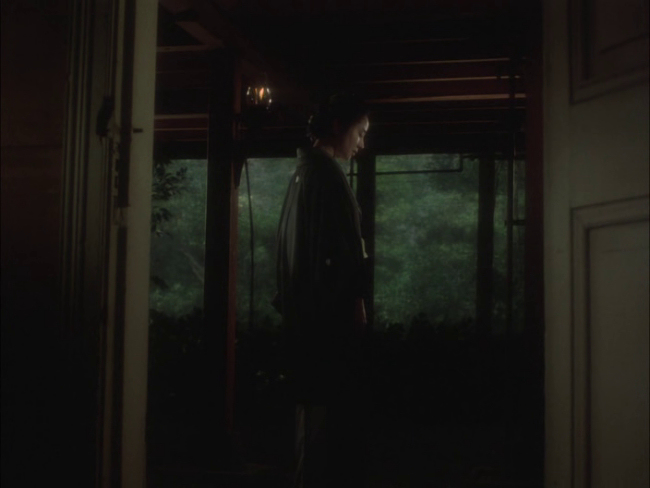
Nakasago is obsessed with human bones, particularly red bones and asks Aochi to bequeath his skeleton to him if he dies first. He describes a series of red crabs crawling out of the woman he murdered.

Can I interpret this? Maybe Nakasago, as one of the voyeurs who is also an object of the voyeur Aochi, is keen to get to what he assumes must be the carnal, true heart of things.
The film has a lovely colour palette, its jade greens and pale yellows reminding me of Naruse's Daughters, Wives, and a Mother but with darker tones for contrast--blacks, reddish wood panelling, and splashes of saturated red.

A trio of blind street musician beggars perform throughout the film and Nakasago argues with Koine/Sono about their relationship to each other. One beggar is an old man, the other two are a young man and young woman. Aochi says the old man is their father, Sono says the old man is married to the woman and the young man is his servant. Later Sono insists that all three married each other while Nakasago says he personally witnessed the two men murder each other while the woman floated out to sea playing her biwa. Whatever this might mean, it seems clearly to reflect the rest of the film. In any case, I couldn't tear my eyes away.
